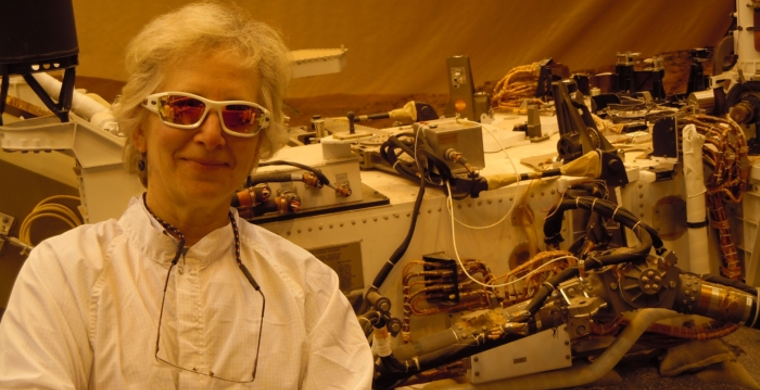Episcopal Priest-Scientist: Possibility "Mom doesn't like us best"
By Jeffrey Walton
www.juicyecumenism.com
April 13, 2021
The Rev. Pamela Conrad, rector of St. Alban's Episcopal Church in Glen Burnie, Maryland, is a neat person whom I'd likely enjoy speaking with as an astronomy geek and fellow Anglican Christian.
Episcopal News Service published a profile this week of the Maryland Episcopal priest and scientist working with NASA on the Mars Perseverance rover:
Conrad connects virtually with scientists around the country and at NASA's Jet Propulsion Laboratory in Southern California for several shifts a week, monitoring sensors that she helped design as they transmit data about the Martian environment. Among the instruments she works with are the cameras that have sent back over 25,000 photos, including Perseverance's first selfie, which shows the rover and the small helicopter that is expected to take the first-ever powered flight on another planet later this week.
Conrad tells ENS that the scientific and spiritual worlds have always been intertwined for her, united by a sense of wonder. From an early age, she remembers "being very in touch with the general concept of nature and God."
That concept of General Revelation -- God disclosing himself to us through the created order -- is helpful in pointing us to him, and even preparing our hearts and minds to see his character in Jesus Christ.
The Apostle Paul writes in Romans 1:20: "For his invisible attributes, namely, his eternal power and divine nature, have been clearly perceived, ever since the creation of the world, in the things that have been made."
But Conrad veers away from historic Christian teaching in the interview:
"People often regard humans as the pinnacle of creation. We don't want to consider the possibility that Mom doesn't like us best. As Christians, what we have to ask ourselves is, If God can create life here, is God big enough to create life elsewhere? Of course, the answer is yes."
Can life exist elsewhere? Yes, it could, and God would have an interest in such life. But scripture and the historic teaching of the Church proclaim that man is uniquely made in the image of God. The entire created order is good, but mankind's role is special.
Genesis 1:27 tells that "God made man; in the image of God He made them; male and female he made them."
Setting aside Conrad's use of a female "Mom" title for God (that's a different topic) I'd argue that yes, he does "like us best" (in the sense that he takes pleasure in us as Psalm 147 says) and that comes with unique advantages and unique responsibilities in regards to our role with the rest of creation.
When Jesus speaks in Matthew chapter 6 about why we should not be anxious, he instructs: "Look at the birds of the air: they neither sow nor reap nor gather into barns, and yet your heavenly Father feeds them. Are you not of more value than they?"
God regards each human life to be of special value. God does want us to explore his universe (the scope of which may serve to convict us of our small size and reliance upon him) but our value is different. An Episcopal priest should be aware of and unashamedly proclaim this.
END














